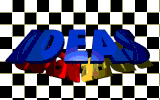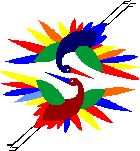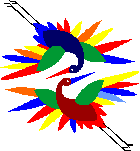
|
|

|
|

-Welcome to STORY 1001!
Searching Hints & Tips
How Do
Search Engines Work?
Browse means to scan, skim or read and can also mean eating, grazing,
pasture,
or crop.
In ordinary English not pertaining to computerized data processing,
browse means to loosely and superficially look through
something
(for example, a market
place, a store, a collection of something, a book, a newspaper, an article,
etc.) with the purpose of only quickly seeing what it is or what it’s about
without dealing with the further details of what is being looked at.
Pertaining to grass- or plant-eating animals or agriculture,
browse can
mean eating, grazing, pasture, or crop.can mean eating, grazing, pasture, or
crop.
Technically a Browser or a Web Browser is software that is used to extract (get) information from the World Wide Web.

No1: No search engine covers very much of the vast material available on
the Internet!
Imagine millions and millions of documents & files of various kinds.
Ingen sökmotor täcker särskilt mycket av det otroligt omfattande
materialet som finns på Internet!
Tänk dig att det finns miljontals och åter miljontals dokument & filer av
olika slag.
Vissa sökmotorer är bra till vissa saker, andra till annat. Om du vet att materialet du söker är skrivet och publicerat (digitalt) i Sverige, ja, då kan du ju söka här hemma med hjälp av en svensk sökmotor/sökmotorversion som www.yahoo.se eller www.google.se.
Söker du material som du tror finns utomlands
och/eller är publicerat på ett annat språk än svenska, ja, då ska du
naturligtvis söka med ett annat språk än svenska och du ska definitivt
inte besvära dig med att använda svenska sökmotorer/sökmotorversioner.
Se språkval samt ev.
landskod, URL:en slutar med .se, mm mm!
Flera kriterier finns som hjälper dig fastställa en sidas hemvist.
Kom också ihåg att olika motorer fungerar mer eller mindre bra med hjälp av varierad sökteknik som att använda citattecken/citationstecken (" "), plustecken ( + + ), minustecken (- -) eller asterisk/"stjärna" ( * ). "Stjärnan" i dagligt tal, egentligen benämnd 'asterisk' är ju något av en joker i leken och kan med framgång ibland användas då man är osäker på exakt stavning eller variant av ord, eller exakt frasinnehåll.
" " citattecken använder du när du
skall ha tag på ett exakt uttryck eller ett givet namn där
sökobjektet/sökmålet innehåller flera ord. Här är oftast citattecken ett
bra och väl fungerande grepp.
I'd like to find
me a "yacht of more than 30 feet"
* * asterisk/"stjärna" klan* fångar kanske både 'klant', 'klang' & 'Klangehamn' så använd asterisk med förstånd & skärpa
+ + plustecken +saltgurka +falukorv fångar med automatik de sidor som innehåller exakt orden 'saltgurka' & 'falukorv' och i den formen
- - minustecken -kalle +Sigrid eliminerar automatiskt sidorna där det står om järngänget 'Sigrid' & 'Kalle' & 'Halta Lotta' och gallrar så att säga fram med finess & bravur endast de intressanta sidorna som du vill ha där endast Sigrid beskrivs eller omtalas.
...och, som sagt var, eftersom ingen sökmotor eller sökteknik fungerar
över hela fältet så är det viktigt att känna till några av
förutsättningarna och de här ovan nämnda klarar man sig icke utan.
Resten är fotarbete, fotarbete och tid & tålamod i kombination med
fantasi & envishet.
Naturligtvis underlättas detta om man har ett visst språkligt intresse för
detaljer.
SEARCH
- For those not used to search and search
functions within the computing environment, searching on the Internet &
searching in a database sometimes need an extra amount of consideration &
thought before getting started.
Learn about 'wildcards' & 'wildcard characters'
before you find yourself in a very time-consuming situation, confused, out
of time, lagging behind, not knowing anything or little at the most,
sometimes with a feeling or sense of realization
that there is really no information to be found.
'Wild card' is a method permitting an operating system to perform utility
functions on multiple files
with related names without the user or programmer having to specify each
file by its full & unique name.
That's why you sometimes might end up
finding "Donna", "Dona", "Donald" and "Don"
when
you've searched for "Don".
Remember
also to get your 'slash' right (/)...
When you're in system folders and directories you want a (your) slash
tilted to the left ( \ )
whereas when you're on the Internet or on your
local Intranet you want to use "the right one" (/).
Quite frequently
colleagues turn to me complaining about a lack of information.
But usually there's never anything correct about that assumption.
Good searching requires common
sense,
creativity,
technique and an on-line computer.
-That's about it!
Technique
can be acquired by reading thoroughly through the instructions found at
major search sites.
Also, there's usually very good
information to be found in your own
Web Browser
under Help.
Also, of course, it is important to become aware of the importance of "the
plus" (+).
If you want to find something consisting of two words where the word order
doesn't matter
you type a plus (+) before each word (+bilar
+Chevrolet).
If you want pages or websites containing information in
Swedish
about Chevrolet cars, this is it.
If the word order is significant (important) you
use a quotation mark at each end
(before the first word and after the second word). This way you make
sure you end up finding pages where these words are found exactly the way
you wanted them.
Type mainly using small letters unless otherwise required by
circumstances,
because 'peanut' will find 'Peanut' but never will
Peanut find peanut (groundnut)!
Different wildcard characters and their meanings
?
Any single character in this position
*
Any
number of characters in this position
#
A
single number in this position
[]
Find these characters
[!] Don't find these characters [!characters]

... again, the wildcard characters & their meanings
? any single character in this position
* any number of characters in this position
# a single number in this position
[] find these characters
[!] don't find these characters [!character here]
If you make a habit of using these characters
in your search activities you can rest assured regarding
utilizing your limited time and making the best of it.
Example
If you were to search for h?ll you would find hall, hell, hill,
hull, håll, häll, höll but you wouldn't find 'hålla', 'hälla' etc. which
would require the following search text: h?ll?
Similarly you would find 'the', 'true', 'tongue' but not 'tea' if you were to search for t*e
?
-Please be aware of the fact that some sites, pages & databases do not
accept or even work with characters other than letters and numbers!
Don't forget WHAT language you're using,
and remember that sometimes it might prove quite efficient even trying out
words & phrases
(in another language!)
which you actually have to look up first on your own.
Don't depend on one language only when searching!
This, among other things, makes it
important to be creative and to be able to use various ways of
searching with different techniques.

About Google Search Engine
More about searching and search engines
Google Data Collection by
Professor Douglas C. Schmidt,
Vanderbilt University
Machine Learning/AI Series & Certification
This series intends to deliver byte-sized sessions on topics
ranging from Data Science, Python, Algorithms and Machine Learning
Models.
Top machine
learning algorithms
Search Engine
Watch
http://www.searchenginewatch.com/
 |
 |
|
|
|
 |
|
 |
|
|

© Swengelsk, KB ® webmaster |
|
|
 |